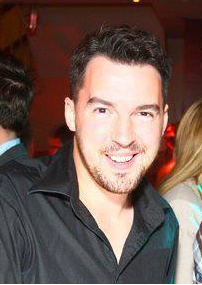This year I had the privilege of providing career support for Neal who has just completed his MA in International Security. It's not easy to live with a condition like psychosis and yet despite setbacks in his life, Neal recently started as a consultant for Alten. He kindly agreed to be interviewed and this is his story.
From the age of 14, I had started to feel unwell and then one day I found myself climbing on the school roof – I was completely deluded and didn’t know where I was. It was like watching the TV programme Quantam Leap or The Truman Show film with Jim Carey. Medics had no idea what caused this as I had never taken drugs, or alcohol and I was diagnosed as having psychosis. Fortunately, I didn’t suffer from any hallucinations, but I ended up being hospitalised for the next six months. I found myself being one of the first people to try Risperidone – an anti-psychotic drug which had great success. I guess during this time I was incredibly lucky and had a great childhood. I was one of seven children with very supportive parents but it was really hard for my parents to see me so ill. I was taken off the medications but then relapsed again at 16 and then 18. But despite everything, I still achieved 4 A levels ABCC from a State School. I somehow knew that Maths would open doors for the future. It was my best subject and I thought it would impress people. I was really happy to get to University of Bath to study Mathematics and Computing from 1998-2002. I spent my year placement at Motorola and then they sponsored me for my second year and final year which was excellent. Somehow, I had managed to get through university without telling anyone about my psychosis. I didn’t tell anyone because I was so worried about the stigma and how I would be received. I survived because I had the support of a long-term girlfriend and by getting a lot of sleep as the drugs made me feel so tired. I wasn’t sporty so didn’t do much exercise, but looking back realised that probably would have helped me. Anyway, I just paced myself and was glad to have got a 2:2. I was also very fortunate that I didn’t have any psychotic episodes during this time.
It wasn’t until the final week of my final year that I told my personal tutor about my mental health as I had asked him to be my referee for MBDA. The tutor actually put on the reference – “this student is extremely good at keeping secrets!” MBDA (part of BAE Systems) offered me a job on their graduate scheme and I worked my way up to principal engineer on their missile systems. I had disclosed my disability when I joined and it had taken 11 months to get my clearance which came with certain restrictions on how I could work, but the organisation was always very supportive and wanted me to do well. I worked on some really interesting and diverse projects including an internship for RUSI (a big think tank).
Suddenly out of the blue in 2006 I had another psychotic episode and this time diagnosed as having Schizo-affective disorder with manic type, now labelled as Recurring Psychosis. I guess it may have been kicked started by the fact I had been under a lot of stress outside of work, and also my drug dosage had been reduced yet again. This time I was so bad that I couldn’t even look after myself and I was eventually sectioned 24/7 for six months. In this breakdown and other later breakdowns, I suffered with hallucinations and delusions. It wasn’t a great time in my life and it was hard for my family who visited me regularly. I have never taken drugs (other than my medication), never smoked and never drank and yet here I was again.
My company were great and they paid me for those six months and then I went back to work. I worked successfully for another five years and I was still on medication but I hardly had any time off. Then in December 2011, I fell ill again and I just couldn’t get well and was sectioned three or four times and by October 2014 I lost my MOD clearance which was devastating as it meant I lost my job. Looking back this time, the doctors believe that I ended up with a chemical imbalance, as I was now exercising a lot and spending a lot of time in the gym and somehow this had diluted how the drug worked.
I was finally put on a new drug which is working really well and appealed to the MOD on my clearance but I couldn’t get it back. So in 2015/16, I decided to take some time out and went travelling.
I thought about what I wanted to do and realised that I had always had an interest in military science and I think my time at RUSI had inspired me on that as I would often attend lectures. I had always enjoyed reading magazines such as Foreign Affairs. It was a friend who recommended the Masters in International Security at University of Bath and so I thought “why not!”. I mainly did it out of interest and really enjoyed it although I found the essays hard though because with my STEM background I didn’t have that much experience. My dissertation was on The Ethical Mandate of Autonomous weapon systems in a UK context. If I ever manage to go back into the Defence industry, then I think my Masters will prove to be extremely useful.
What’s different about being at the University of Bath again for a Masters? Well, this time I decided to disclose my disability and it’s been really great to have support. I saw a Counsellor from Student Services every week who helped me to deal with any stress/anxiety I may have had on the course, although I do know that stress is not related to any relapse I might have in the future. I also used the Skills Centre and had my essays checked. As well as this I have used the Careers Service - a lot! I attended a workshop on Developing Resilience to Support your Career run by Careers and Student Services and found this particularly useful. I attended a webinar on To Disclose or Not to Disclose your disability which included information on where to find disability friendly employers. My personal view from having a mental health issue is to disclose after you get a job offer! However, I appreciate that for every individual this will be different. I also had several one to one appointments with a careers adviser. This was useful as I had thought about going on another graduate training scheme but realised through the guidance interviews that I had a load of experience and needed to find a higher-level role. As well as discussing career options, I used the career meeting to seek advice on improving my CV which was actually a challenge to do as a mature student and so the advice was useful. I eventually decided that my career goal was to be a consultant or chief engineer with a particular technical specialism. My longer-term career goals, well I have even thought about going into politics! I really admire those people going into politics later in life even if I might not agree with their political views. I’ve even thought about doing another degree in my spare time.
So, my advice to anyone who has a disability is to get the support you need but also get involved. This time round I joined the Debating Society and the Philosophy Club as well as took part in activities within POLIS attending extracurricular seminars on campus and also at BRLSI in Queen Square. Don’t be secretive either about your condition. I don’t publicise my disability but I will talk about it if asked. The way people view mental health conditions is changing and I think high profile people like Stephen Fry help to do this. It’s really important when things get tough to look back at your previous achievements and remember what you have accomplished. Despite my condition, I have achieved a lot – a 2:1 for my final year project and I am very proud of my French GCSE. And just remember there is nothing wrong in being ill for a year – sometimes that just happens, or taking a gap year to recover. Don’t see these things as a fail – it will in the long term help you to do better grade wise. Repeat a year too if that’s the best thing for you. Most importantly, stick to your medication.
After CV checks/applications checks, and support I ended up with two job offers and had to book another careers appointment to help me with deciding which job! I have just started working with Alten – a multi-national software engineering consultancy and currently working for Rolls Royce designing engines for private jets – really interesting work. So as I start on another career journey, I hope my story will encourage you to do the same!
(For information on support offered by Student Services visit the Welfare and Wellbeing Advice Team. Drop in sessions run daily.)
Respond



